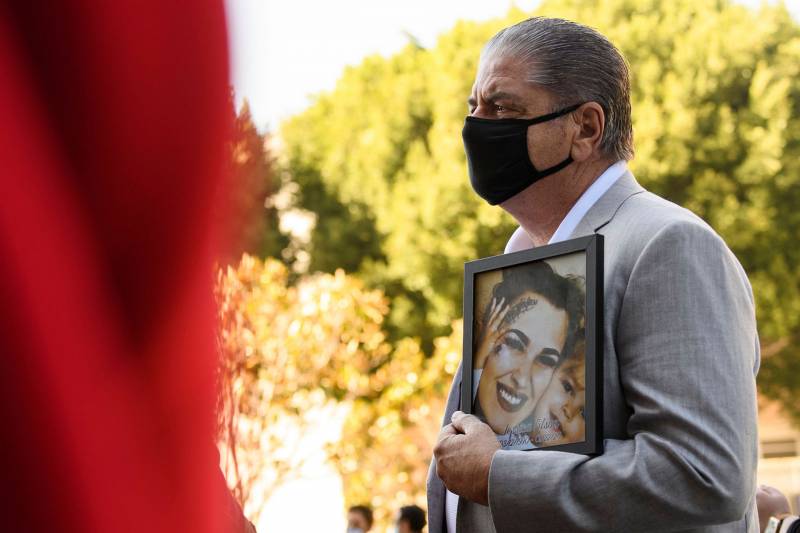An analysis by KQED and Documenting COVID-19, a project run by Columbia University’s Brown Institute for Media Innovation, found that the number of fentanyl overdoses rose sharply from 2019 to 2020 in three Bay Area counties: 170% in Santa Clara County, 68% in San Francisco and 29% in Alameda County.
The national data is provisional as states are still reporting their tallies to the CDC's National Center for Health Statistics. But even with some data not yet complete, the numbers tell a dire story.
Ten states are predicted to have at least a 40% rise in drug overdose deaths from the previous 12-month span, according to the CDC: Vermont, Kentucky, South Carolina, West Virginia, Louisiana, California, Tennessee, Nebraska, Arkansas and Virginia.
Volkow, whose agency is part of the National Institutes of Health, calls the data "chilling." It's another sign, she said, that both the COVID-19 pandemic and the opioid crisis are whipsawing the country with deadly effects.
"This has been an incredibly uncertain and stressful time for many people, and we are seeing an increase in drug consumption, difficulty in accessing lifesaving treatments for substance use disorders and a tragic rise in overdose deaths," Volkow said.
She added that people between the ages of 35 and 44 accounted for the highest number of deaths.
While the provisional data doesn't provide a breakdown by race and ethnicity, other recent studies suggest that at least in Philadelphia and California, the sharpest rise in overdose fatalities last year was among Black residents. And other studies have shown that even before the pandemic, overdose rates in Black communities were rising much faster than among white Americans.
Drug overdoses accounted for roughly one-quarter as many deaths as COVID-19 did in 2020, using the CDC's number of 375,000 pandemic deaths last year.
The provisional 93,331 U.S. drug overdose deaths are a sharp increase from the 72,151 deaths estimated in 2019. Deaths in 2020 from opioids alone — 69,710 — nearly eclipsed the total number of fatal overdoses in the previous year, although deaths involving other drugs such as methamphetamine and cocaine also contributed to the increase.

9(MDAxOTAwOTE4MDEyMTkxMDAzNjczZDljZA004))
